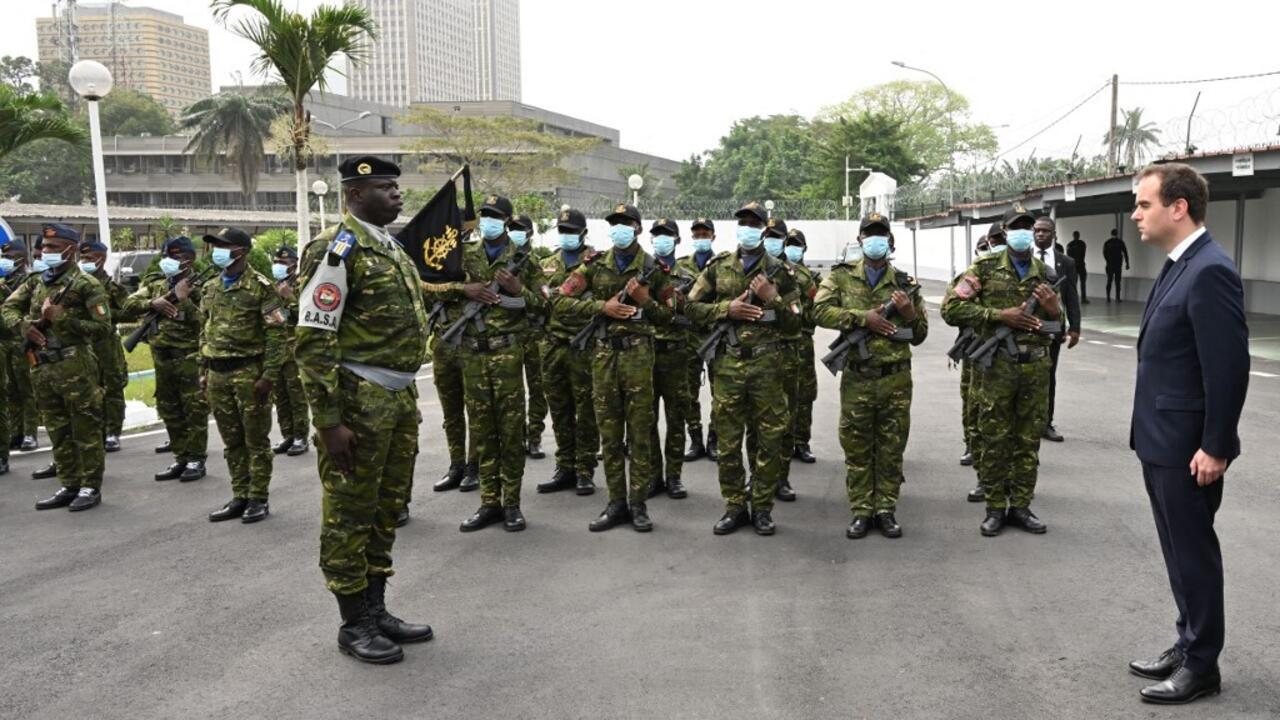Department of Research, Studies and International News03-01-2025
Ivory Coast is the latest African nation to signal a significant shift in its relationship with France by announcing the withdrawal of French troops stationed within its borders. This marks the sixth African country to sever military ties with its former colonial power, joining a wave of nations across West and Central Africa taking similar steps. The decision underscores a broader trend of declining French influence on the continent, driven by a mix of local resentment, historical grievances, and shifting geopolitical alliances.
France’s Departure: A Turning Point in Ivory Coast
On December 31, 2024, during his end-of-year address, President Alassane Ouattara revealed that Ivory Coast’s government had decided to end its military collaboration with France. The move was justified by citing the increasing capability and modernization of the Ivorian armed forces. He declared that the French-operated 43rd Marine Infantry Battalion (BIMA), located in Port-Bouet in Abidjan, would be handed over to local forces starting in January 2025.
The announcement took many by surprise, as Ouattara has often been perceived as closely aligned with France. This decision appears to have political undertones, particularly as the country gears up for general elections in October 2025. President Ouattara, who has held office since 2010, has faced criticism for past decisions, such as his controversial bid for a third term in 2020. Analysts suggest that distancing himself from France could be a strategic move to appease growing anti-French sentiments among Ivorian citizens.
The resentment toward France in many of its former colonies stems from a history marked by colonial exploitation and perceived neo-colonial dominance. During the colonial era, French rule was characterized by rigid governance, cultural imposition, and economic exploitation. Following the independence of African nations in the 1960s, France maintained a network of influence, often referred to as “Françafrique,” to protect its economic interests and sustain its geopolitical presence. This included maintaining military bases, fostering ties with African elites, and operating major corporations like Total and Orano in the region.
However, the enduring presence of French troops in Africa has increasingly been met with criticism. Despite significant military deployments, France has struggled to curb the growing threat of armed groups such as Jama’at Nusrat al-Islam wal-Muslimin (JNIM), which continue to destabilize the Sahel region and expand their influence into coastal nations like Ivory Coast.
A Broader Trend Across Africa
Ivory Coast is part of a larger pattern of African nations rejecting French military involvement. Since 2021, countries like Mali, Burkina Faso, Niger, Chad, and Senegal have all taken steps to expel French troops, often amid rising public discontent and shifting alliances toward alternative security partners such as Russia.
Mali:
The turning point came in 2020 when a military coup ousted the civilian government, with leaders accusing France of undermining Mali’s sovereignty. France began withdrawing troops in 2021, completing the process by 2023. Mali has since turned to Russian mercenaries for assistance, although violence persists.
Burkina Faso:
Following a military coup in 2022, the new leadership ordered French troops to leave, accusing France of supporting the previous civilian administration. Russia has since stepped in as a security partner.
Niger:
In July 2023, Niger’s military staged a coup and expelled French forces by the end of the year, responding to public demonstrations against French influence.
Senegal:
In November 2024, President Bassirou Diomaye Faye announced the closure of French military bases, citing the need to uphold Senegal’s sovereignty. This decision came amid commemorations of a colonial-era massacre, intensifying anti-French sentiments.
Chad:
Another critical link in France’s military network, Chad announced the termination of its military agreement with France in November 2024. This marked a significant setback for Paris, as Chad had long been a cornerstone of its regional strategy.
France’s Military Recalibration
Facing growing resistance, France has begun rethinking its military strategy in Africa. French officials have signaled a shift toward temporary deployments and a greater emphasis on training local forces rather than maintaining permanent bases. This approach aims to align France’s presence with the evolving needs of African nations, but it remains to be seen whether this will restore trust or further diminish its role on the continent.
Despite the pushback, France retains a significant military base in Djibouti, housing approximately 1,500 troops. In Central Africa, a small contingent of 300 soldiers remains in Gabon, where relations with the military government have been relatively stable following a coup in August 2023.
Conclusion
The expulsion of French troops from Ivory Coast highlights a broader trend of African nations asserting their sovereignty and reevaluating their post-colonial relationships with France. While the Ivorian government cites military self-sufficiency as the primary reason, the decision is also a reflection of deeper historical and political dynamics. As France navigates this period of waning influence, its ability to adapt to Africa’s evolving geopolitical landscape will determine the future of its presence on the continent.

